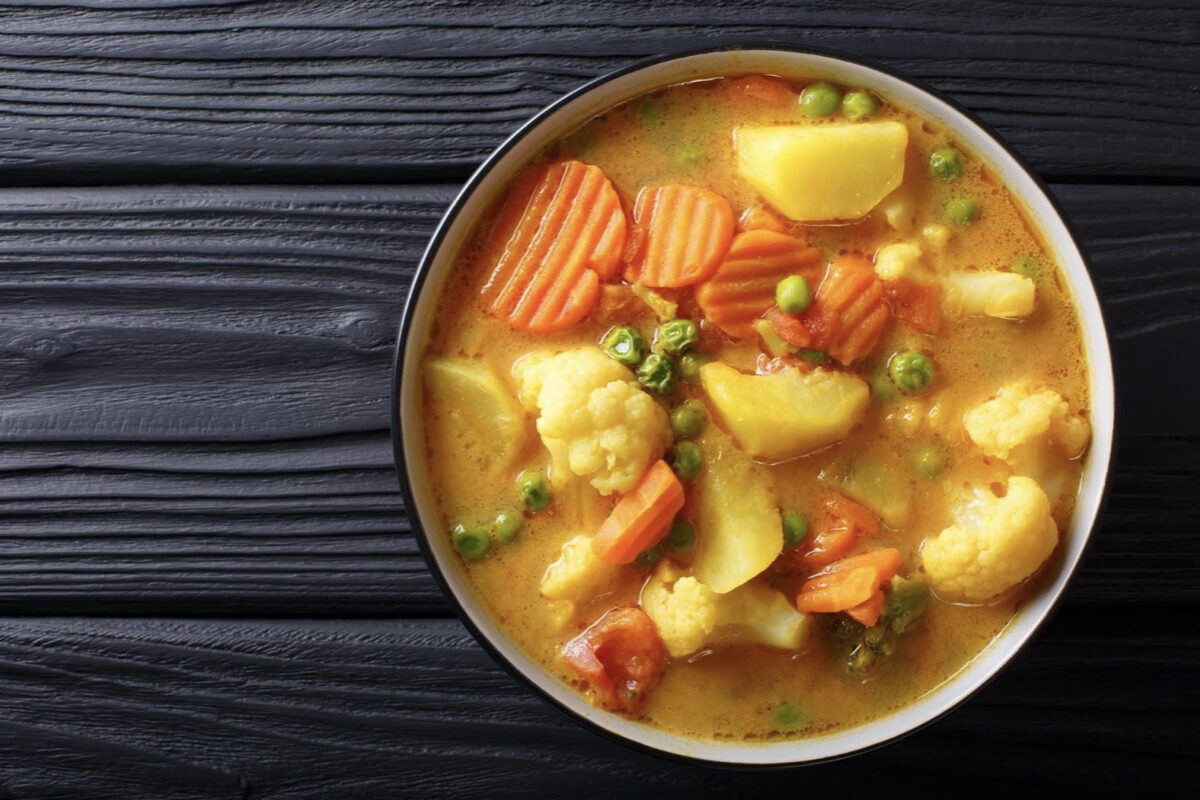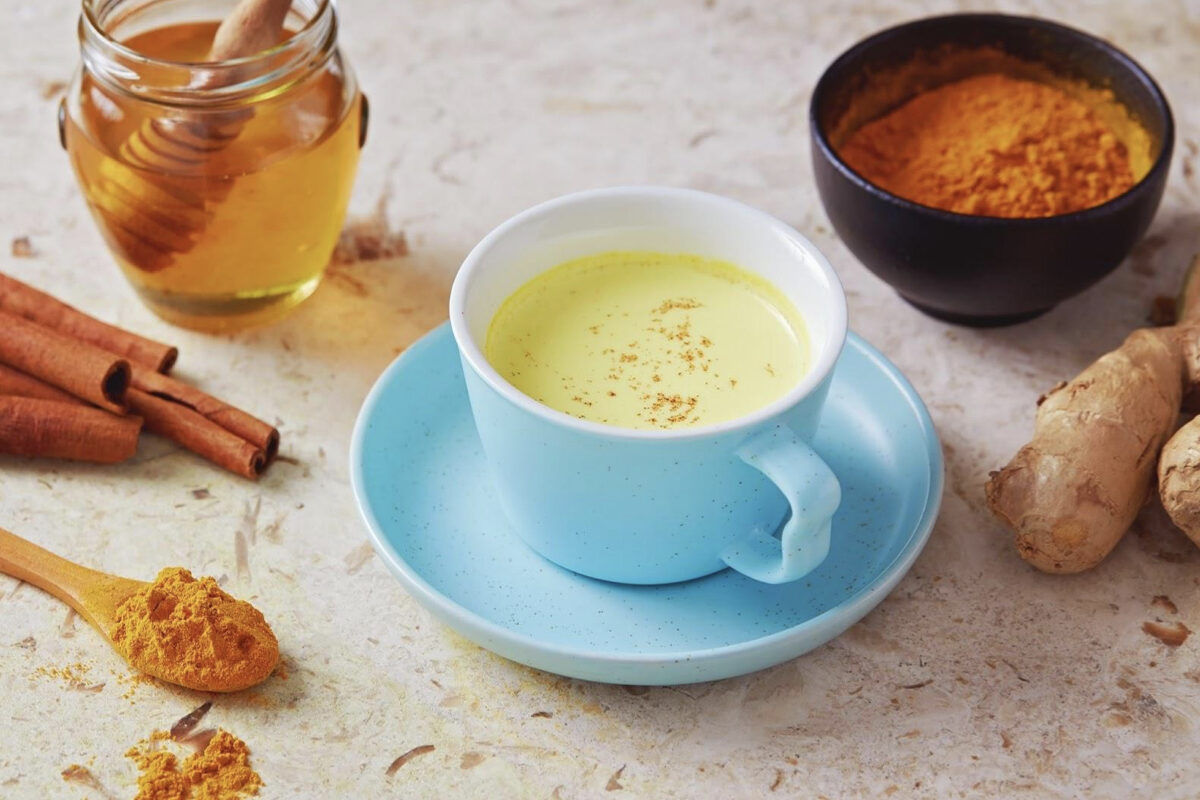


Curry is a blend of spicy aromas that originated in India. Curry and other spices like turmeric, chili, cloves, and fennel have many health benefits.
Dr. Hu Naiwen, a traditional Chinese medicine (TCM) physician at the Shanghai Tong Te Tang in Taiwan, introduced making curry vegetables with turmeric milk in his YouTube program “Hu Naiwen’s Lecture.” Hu said regular consumption of this recipe can help prevent cancer and dementia, and protect the cardiovascular and digestive systems.
A research review article published in Nutrients in 2016 pointed out that spices such as turmeric, black seed (Nigella sativa), black pepper, chili pepper, and saffron all have anti-cancer potential.
The most well-known anti-cancer ingredient in curry is curcumin, which has curative effects on lung cancer, colorectal cancer, breast cancer, and leukemia, and can inhibit the growth of cancer cells and promote the apoptosis (self-destruction) of cancer cells. Clinical experiments have shown that after taking curcumin, the apoptosis rate of cancer cells in patients with colorectal cancer is accelerated, and the patients regain weight instead of losing it, like other cancer patients.
In TCM, turmeric is regarded as a medicinal herb for treating cancer. Hu pointed out that the main function of turmeric in Chinese medicine is to remove blood stasis. Li Shizhen, an eminent medical scientist in the Ming Dynasty, recorded in his “Compendium of Materia Medica” that turmeric can treat “Zhengjia,” the classical Chinese term for gynecological tumors or cancer. TCM believes that gynecological diseases such as uterine fibroids and endometrial cancer are mostly caused by blood stasis—that is, the microcirculation in the body is not smooth.
Hu also pointed out that turmeric can warm the body and raise body temperature. When the body temperature rises, the immune function will be enhanced, thus achieving the anti-cancer effect.
Eating curry can also protect cardiovascular health. Curcumin in curry has the effect of lowering blood fat, and can also enhance the sensitivity of insulin, which has an especially positive effect on diabetic patients.
A Korean study showed that after they ate curry rice two to four times a month, overweight people who were at higher risk of hyperglycemia and hyperlipidemia had lower blood sugar and triglyceride levels than those who seldom ate curry-containing food.
Curcumin in curry also has the effect of helping prevent and treat dementia. Studies have found that curcumin can improve cognitive function in Alzheimer’s patients and promote immune cells to clear plaque in the brain.
A 2006 study published in the American Journal of Epidemiology found that older adults who often or occasionally ate curry had better cognitive performance than those who rarely or never ate curry.
Hu also pointed out that the spleen and stomach are the foundation of good health, and spices have the effect of warming the spleen and stomach, which can remove excess water in the body.
Clinical studies have shown that after 30 days of giving curcumin and fennel-based oil to patients with irritable bowel syndrome, 25.9 percent of the symptoms disappeared, while only 6.8 percent of the patients in the placebo group had the same symptoms alleviated. Animal experiments have also found that curcumin can slow down the intestinal peristalsis of rats and improve intestinal discomfort symptoms such as diarrhea, abdominal pain, and irritable bowel syndrome.
However, Hu emphasized that the spices in curry are irritating in nature, and patients with gastroenteritis and that gastric ulcers should not eat too much.
In addition, pregnant women are not advised to eat too much curry, because curry will promote uterine contraction.
Hu introduced a vegan curry with the following recipe and preparation method.
Ingredients:
Preparation:
- Cut the potatoes, carrots, and king oyster mushrooms into cubes, and mince onions for later use.
- Put oil in the pot, add onions and stir fry, then add potatoes, carrots, and king oyster mushrooms and fry until fragrant. Add water to fully cover the ingredients, bring it to a boil, and continue with low heat.
- Add curry powder, turmeric powder, red bell pepper powder, and salt, and cook for another 15 minutes.
- Add broccoli and cook longer.
- Add lotus root powder and water, and stir until the curry becomes thick and sticky. Then it’s ready to serve.
Vegetables have great nutritional health values. A Harvard University study found that women who eat more vegetables and fruits, especially cruciferous types such as broccoli, and yellow and orange vegetables such as carrots, have a lower risk of breast cancer. Women who ate four servings weekly had a 17 percent lower risk of breast cancer than those who ate two or fewer servings per week.
Hu also suggested a glass of turmeric pumpkin milk for breakfast to help warm the body.
Ingredients:
Preparation:

